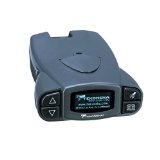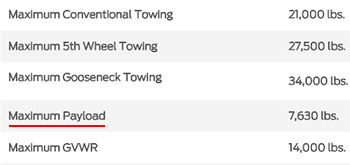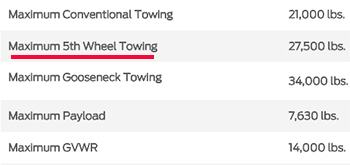

Click
image above to see all Tekonsha controllers with wiring
harnesses for various truck models.
(Opens in a new window)
When you are pulling upwards of 10,000 lbs, you want
to make sure you can stop quickly and effectively.
The Tekonsha P3 trailer brake controller uses a G-Sensor
accelerometer, instead of the traditional pendulum
mechanism. This brake controller is one of the best
available and works reliably on downhills and inclines,
unlike the current pendulum brake controllers. This
brake controller will stop the trailer with almost
no shuddering and the troubleshooting feature allows
you to view diagnostics which is extremely helpful.
The Tekonsha also shows an alert should the trailer
brakes come disconnected for some reason. Tekonsha
provides a wiring harness for almost any model of
truck. This makes installation easy compared to trying
to wire in other makes of brake controllers.Tekonsha
has been a best seller for a while now and with good
reason.
What is Gross Axle Weight
Rating (GAWR) and do we care?
The Gross Axle Weight Rating is the maximum weight
the axle can carry. This means all of the weight the
axle can carry, including the weight of the axle itself
and the truck bed. For us to know how much we can
load onto the truck, like the weight of the front
of the Fifth Wheel, we ignore this rating as we don't
know how much the axle and truck bed weigh. The most
important weight rating we need to know is the Max.
Payload for the truck.
When
selecting a truck we need to know the Hitch Weight
or Pin Weight of the Fifth Wheel we will be pulling.
That weight is normally always in the specifications
for the Fifth Wheel. The Fifth Wheel Pin Weight is
the weight of the front of the Fifth Wheel that will
be pushing down on the axle of the truck.
The fifth wheel hitch weight or pin weight cannot
exceed the maximum payload of the truck.
Maximum
Payload for the truck
The way we know how much weight the truck can be loaded
with is to check the Maximum Payload capacity
for that truck. Below is the specifications as shown
in a dealer sheet for a truck. You should be able
to find the Max Payload on the dealers specs for the
truck.

If you cannot find the Max. Payload spec. It can be
calculated like this:
How to Calculate Truck Payload
Capacity
Take
the Gross Vehicle Weight Rating (GVWR) and subtract
the Curb Weight of the truck. The Curb Weight is the
weight of the truck without cargo or passengers. Both
of these weights should always be in the specifications
for the truck.
For example, if we have a GVWR of 9900 lbs and a curb
weight of 6469 lbs then: 9900 minus 6469 will give
us a max payload of 3431 lbs.
Next we have to take into consideration the weight
of passengers in the truck and any other cargo loaded
into the truck and deduct that weight from the max
payload.
After we have a loaded truck (passengers and cargo
plus the weight of the fifth wheel hitch / pin weight)
our loaded truck weight should not exceed the max.
payload for that truck.
When we see these huge Fifth Wheels, one tends to
think that the front end weight or hitch weight of
the Fifth Wheel must be huge. But most Fifth Wheels
hitch weights average around 2,000 lbs or less. The
40 foot Big Horn weighs an impressive 16,000 lbs but
the hitch weight is only 2,040 lbs.
Above we calculated how much we can load onto the
truck, which includes one of our most important weights.
The weight of the front of the Fifth Wheel. This is
the weight that will be pushing down on the rear axle
when the Fifth Wheel is hitched to the truck.
 How Truck Tires can Increase
Payload Capacity
How Truck Tires can Increase
Payload Capacity
All
tires have various load rating specifications.
If the standard tires on the truck are load rated
for 3,000 lbs and you replace those tires with a tire
rated for 3,400 lbs, then you have just increased
the payload capacity of the truck by 800 lbs.
How Much Weight Can The Truck
Tow
Next we need to know how much the truck can pull behind
it and this weight will be the maximum weight of our
Fifth Wheel RV or we will exceed the towing capacity
of the truck.
If we exceed the towing capacity of the truck we will
put excess strain on the engine, the transmission
and the brakes. The truck will not perform well pulling
the Fifth Wheel and steep inclines could overheat
the engine.
Driving an overloaded truck is stressful and if an
accident were to occur, insurance could be affected
by the fact the truck was overloaded.
The Max. 5th wheel towing capacity is also found in
the dealer specs for the truck,
as shown below.
The weight of your fifth wheel will be shown in the
specs for the fifth wheel and also on a small metal
plate on the side front of your fifth wheel.

If we look at a Fifth Wheel RV we see in the specifications
that there is a Dry Weight, a Gross Weight and a Cargo
Weight.
So for example a 40 foot Big Horn 3755 FL has a Dry
Weight of 13,910 lbs and a Gross Weight of 16,000
lbs.
So we need a truck with a maximum tow capacity of
16,000 lbs and a 16,000 lb hitch right? Not so. We
need to factor in added weight from the fresh water
tank and cargo we have stored in the Fifth Wheel.
Let's look at the 3755FL Big Horn again. It can carry
73 Gallons fresh water, 90 gallons grey water &
45 gallons black water. That is an extra 1,734 lbs
just in water.
It is far better to have an over rated truck than
one that's max. towing capacity is very close to the
gross weight of the Fifth Wheel RV. If this is the
case then the truck will almost always be over loaded.
We also want to make sure that the hitch for the Fifth
Wheel is rated more than the Gross Weight of the Fifth
Wheel. This would be our safety zone.
When you look at truck specifications you will see
Conventional Trailering and Fifth Wheel Trailering.
Conventional Trailering is tow capacity with a ball
hitch on the rear of the truck. We want to look at
Fifth Wheel Trailering for our weights.
Bringing it all Together
- Gross Combined Weight Rating (GCWR)
When the Fifth Wheel is hitched to the truck and the
Fifth Wheel is loaded for travel, along with the truck
with its driver and passengers and fuel, the weight
of the loaded truck and the loaded Fifth Wheel should
not exceed the Gross Combined Weight Rating shown
in the specifications for the truck.
Factors that affect Towing
Capabilities
Factors that affect towing are mainly 2 wheel drive
trucks can pull more than 4x4 trucks, diesel engines
can pull larger capacities than gas trucks. Diesel
trucks also tend to get better mileage than gas trucks
when pulling an RV. Your trucks axle ratios affect
towing capacity.
If you need to find Tow Ratings for a vehicle, here
is a comprehensive Tow Guide. The Tow Ratings start
on page 13. 2018
Tow Guide (Will open in a new
window)
 Fifth
Wheel Towing Calculator
Fifth
Wheel Towing Calculator
 You
might also enjoy:
You
might also enjoy:
Tips
and Tricks for New RV Owners
The
Secret to Stress Free Hitching
